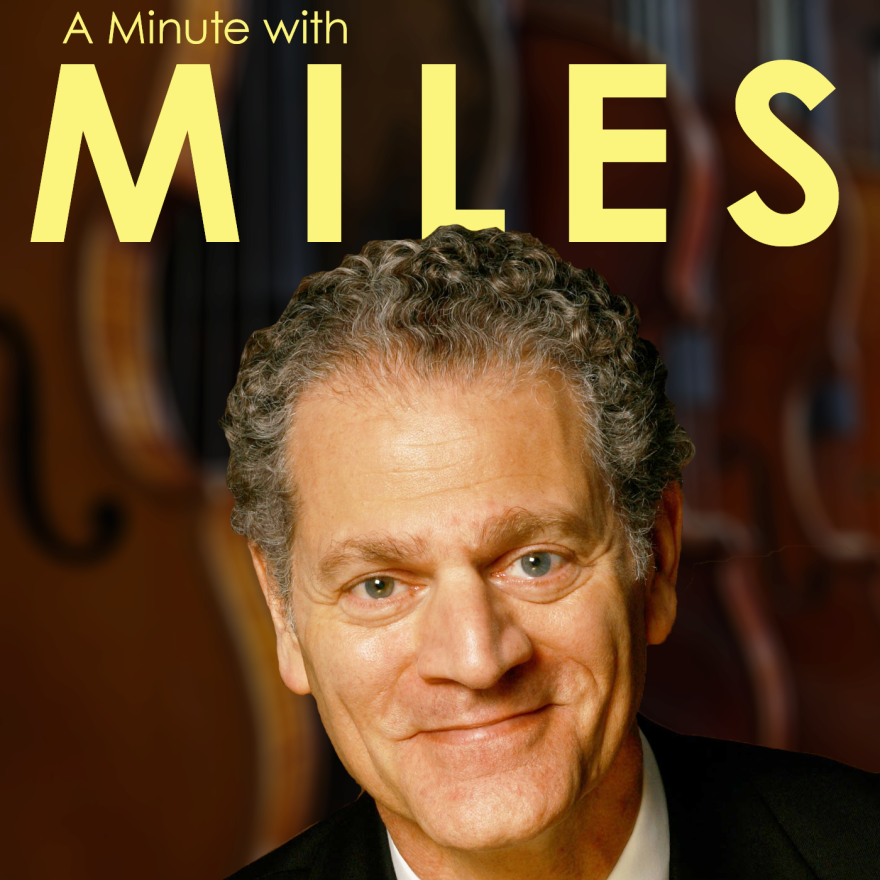The word sonata comes from the Italian sonare, an old form of suonare, which means “to sound,” or “to play,” as in “to play an instrument.” And indeed a sonata is always an instrumental piece—and since about 1750 the term has usually referred to pieces that are written either for solo piano or for piano and one other instrument.
Often that “other” instrument is the one that gives the sonata its name, so that a sonata for violin and piano is called a “violin sonata,” and a sonata for flute and piano is called a “flute sonata.” This is a relatively modern development of nomenclature, though, and in fact a reversal, because during the Classical period, the time of Mozart and Beethoven, violin sonatas, for example, were often published with titles such as, “Sonata for Piano with the Accompaniment of a Violin.” The pieces themselves were equal partnerships, but the piano somehow got the naming rights.
A Minute with Miles is a production of South Carolina Public Radio, made possible by the J.M. Smith Corporation.




